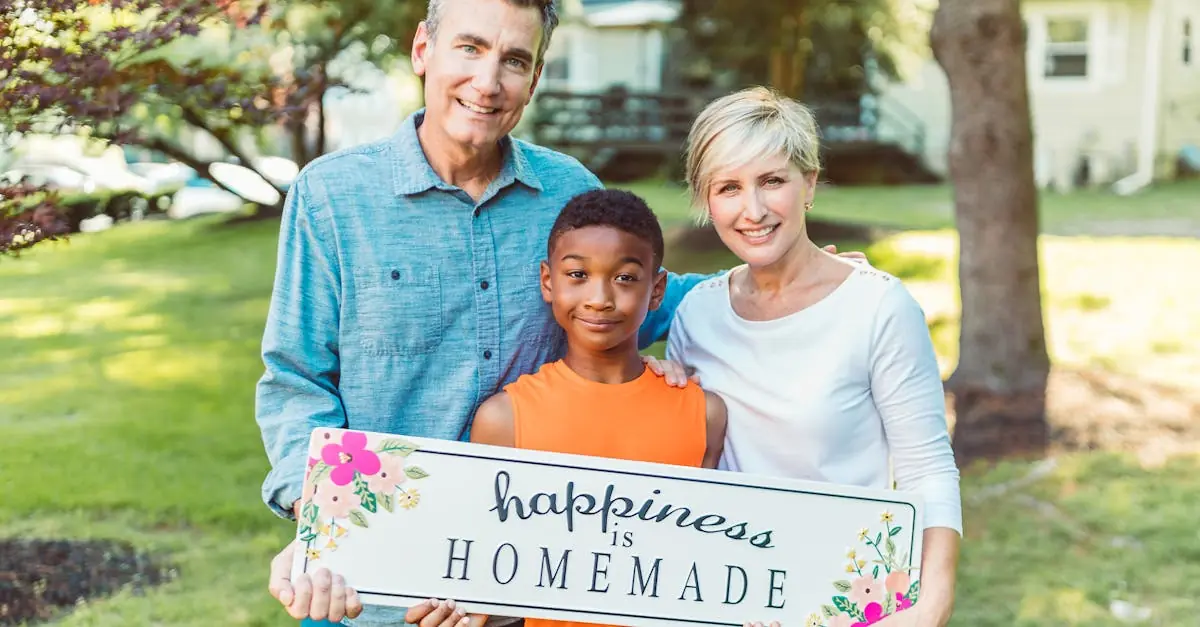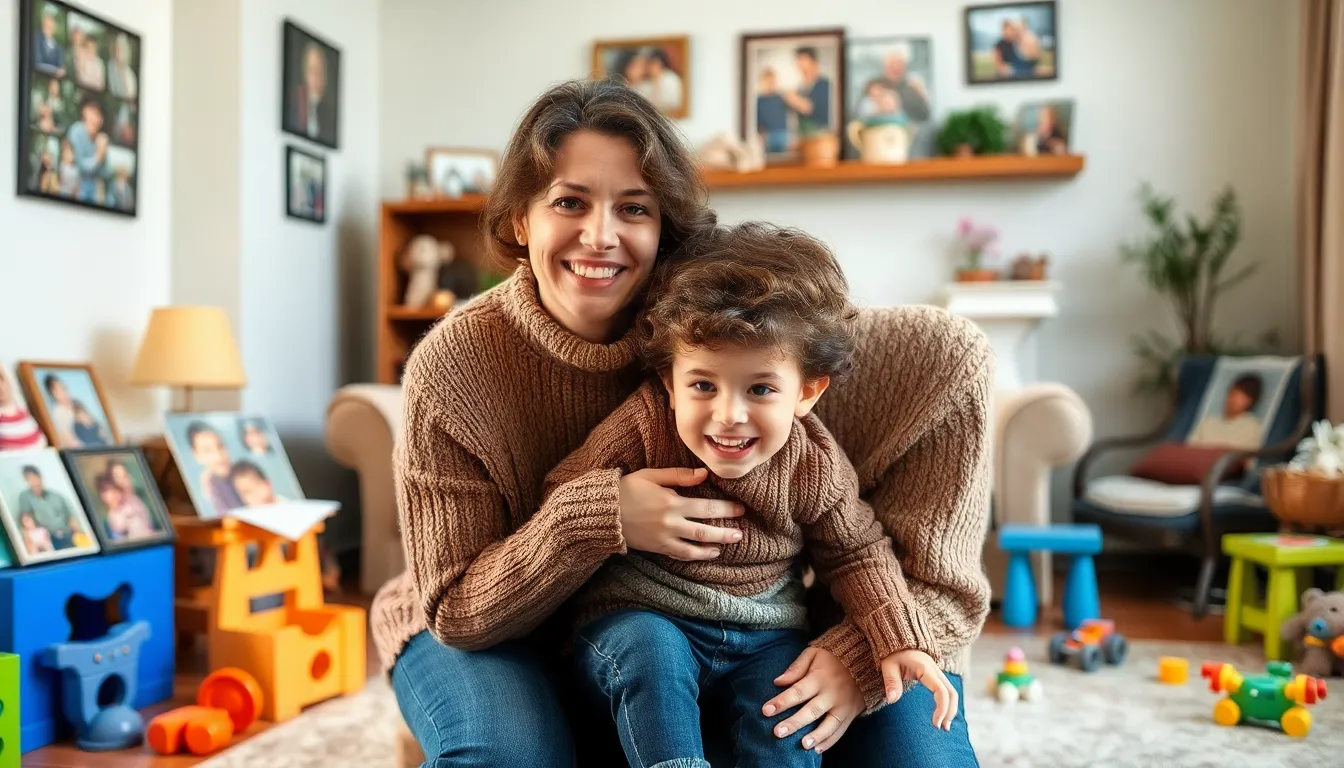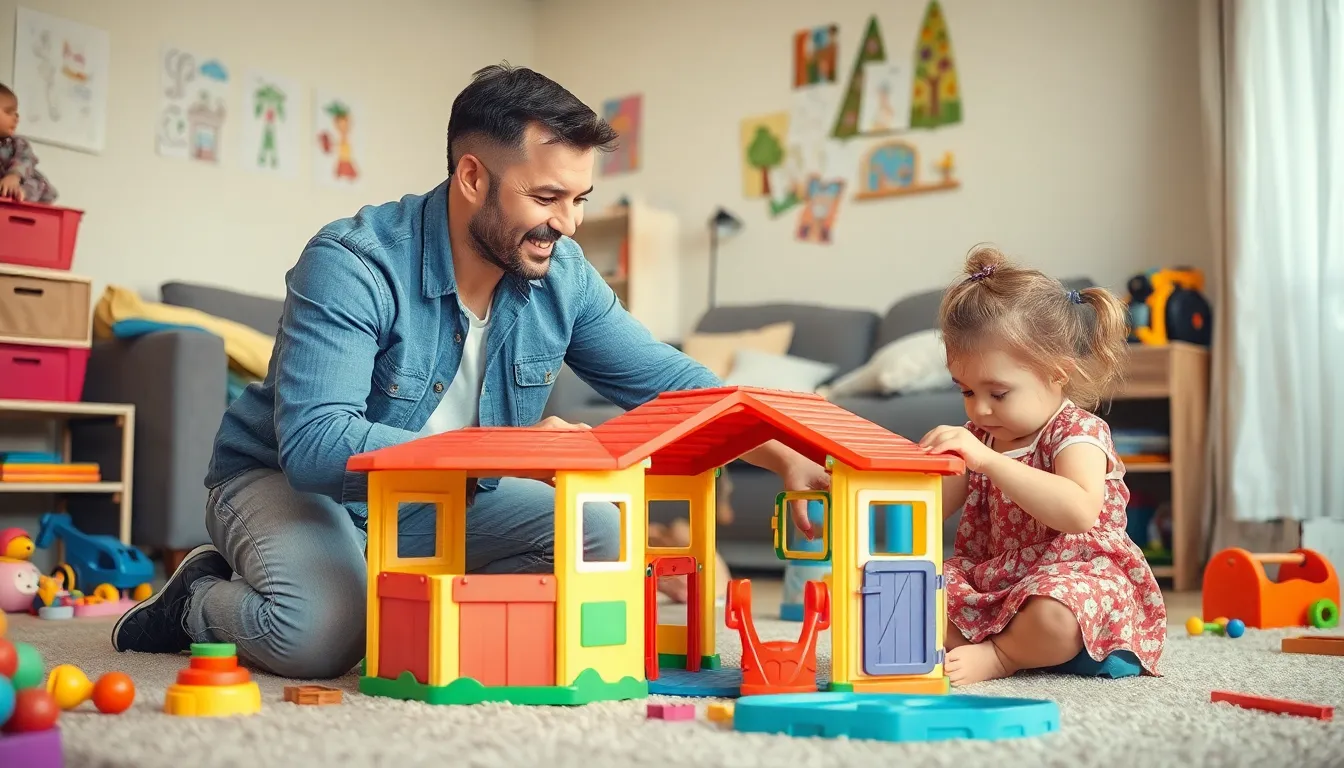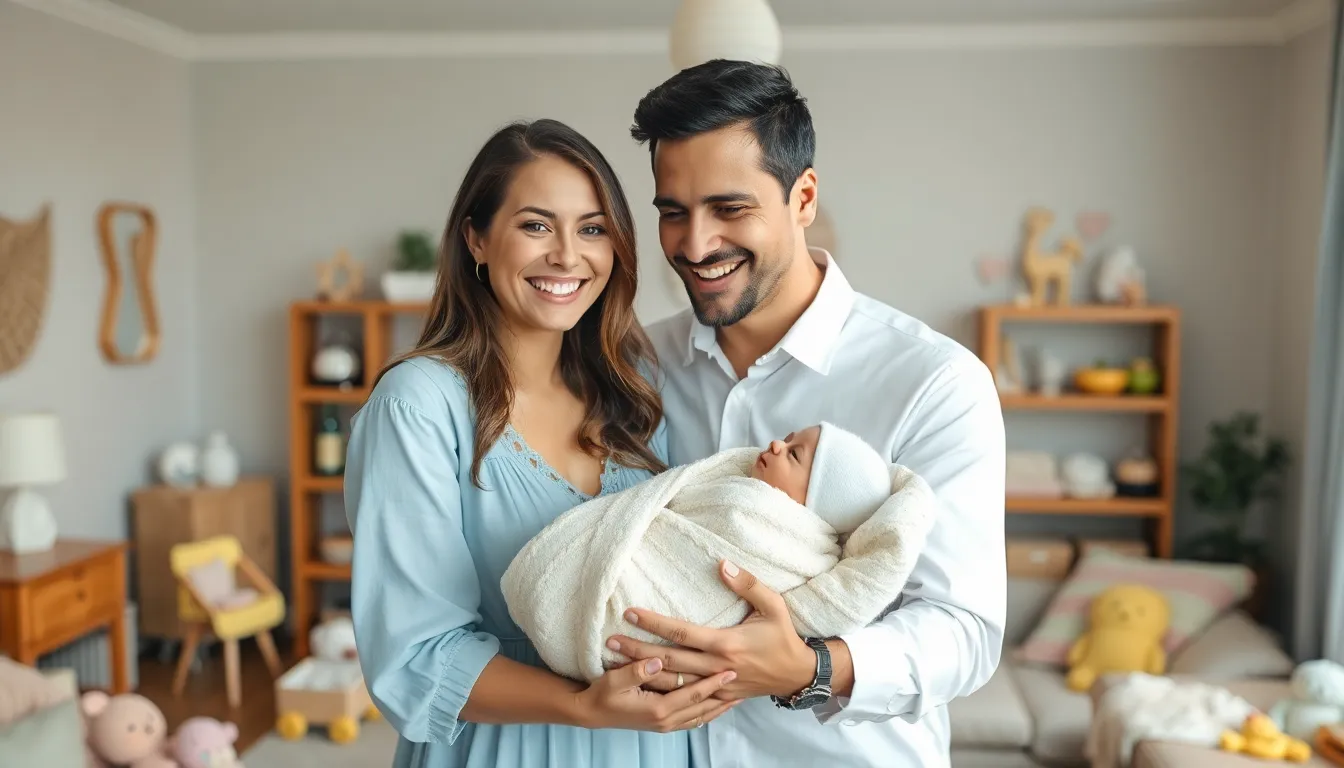Adoption can be a beautiful journey, but it often comes with a side of emotional baggage. When long-lost family members reunite, it’s like opening a surprise gift—exciting yet a little nerve-wracking. Adoption reunion counseling steps in like a trusty GPS, guiding everyone through the twists and turns of these heartfelt encounters.
Imagine navigating the rollercoaster of emotions without a safety harness! That’s where counseling shines, helping both adoptees and birth families process their feelings and expectations. It’s not just about reconnecting; it’s about building bridges and understanding the past. So, if you’re ready to dive into the world of adoption reunion counseling, buckle up—it’s going to be a wild ride filled with laughter, tears, and maybe a few awkward moments.
Table of Contents
ToggleUnderstanding Adoption Reunion Counseling
Adoption reunion counseling provides essential support for adoptees and birth families. Counseling facilitates the emotional process involved in these reunions.
Definition of Adoption Reunion Counseling
Adoption reunion counseling refers to professional guidance during the reunion of adoptees and their birth families. This counseling offers a safe space for individuals to express their feelings. Trained counselors help clients process their emotions and address concerns about the reunion. Techniques may include individual sessions or joint discussions that promote understanding. The focus remains on creating a positive environment for open dialogue.
Importance of Counseling in Adoption Reunions
Counseling plays a crucial role in navigating complex emotions during adoption reunions. It prepares individuals for various emotional responses that may arise. Support from a counselor enhances communication skills, allowing participants to share feelings more effectively. Increased understanding fosters stronger connections between adoptees and birth families. Many individuals report feeling more confident and less anxious after engaging in counseling, leading to improved reunion outcomes.
Key Goals of Adoption Reunion Counseling
Adoption reunion counseling aims to support adoption reunions by providing essential guidance and fostering understanding among all parties. Several key goals facilitate the reunion process effectively.
Facilitating Communication
Counseling encourages open dialogue between adoptees and birth families. Clear communication helps express feelings and expectations that may arise during reunions. Guidance focuses on teaching effective listening skills, ensuring that each person feels heard and valued. Conflict resolution techniques play a vital role in addressing potential misunderstandings. Ultimately, effective communication leads to more meaningful connections and helps build trust between all involved.
Emotional Support for All Parties
Counseling provides emotional support tailored to the unique experiences of adoptees and birth families. Professionals create safe and supportive environments where individuals can share their feelings without fear of judgment. This support reduces anxiety and equips them to navigate emotional challenges together. Sessions often involve coping strategies that address grief and loss, allowing participants to process their feelings constructively. As a result, people involved in adoption reunions experience increased confidence and emotional resilience during this significant journey.
The Counseling Process
Adoption reunion counseling follows a structured approach to support individuals throughout their emotional journey. This process focuses on fostering understanding and healing during reunions.
Initial Assessment and Goal Setting
Initial assessments identify individual needs and establish clear goals for the counseling process. Counselors explore the histories of both adoptees and birth families, creating a comprehensive understanding of their unique experiences. Setting specific, achievable goals helps guide the sessions, enhancing the effectiveness of the support offered. This step encourages participants to articulate their hopes and fears, ensuring that the counseling process becomes aligned with their personal objectives. Establishing trust during this phase is essential, as it lays the foundation for open communication moving forward.
Techniques Used in Counseling Sessions
Counseling sessions incorporate various techniques tailored to meet individual needs. Active listening fosters a sense of safety, allowing participants to express their emotions without judgment. Additionally, counselors may use role-playing to practice conversations that could arise during reunions, improving communication skills. Guided imagery can help individuals envision positive reunion outcomes, reducing anxiety. Techniques also include exploring personal narratives, encouraging participants to share their stories and emotions openly. Such a multifaceted approach empowers participants to develop healthy coping strategies and enhances overall emotional resilience.
Challenges in Adoption Reunion Counseling
Navigating adoption reunions involves numerous challenges that can complicate the process. Understanding these hurdles helps individuals prepare for their emotional journey.
Emotional Barriers
Emotional barriers often arise during adoption reunions, impacting communication. Fear of rejection can prevent individuals from expressing their feelings openly. Anxiety about past experiences may also surface, influencing reactions in the moment. Grief related to loss often complicates interactions as well. Each reunion brings unique histories, and unresolved emotions can make it difficult for participants to connect meaningfully. Professionals guide individuals in addressing these emotions and fostering healthy communication.
Misunderstandings and Expectations
Misunderstandings frequently occur in adoption reunions because of differing expectations. Adoptees may envision a reunion as a joyful experience, while birth families might carry regrets or unresolved issues. Clashing perspectives create confusion, affecting the dynamics of the meeting. Clear communication becomes essential to bridge these gaps. Expectations around emotional responses can also lead to disappointment. Counseling helps clarify these concerns, ensuring all parties engage with realistic views. Through guided discussion, misunderstandings can be addressed effectively, leading to a more satisfying reunion experience.
Resources for Adoption Reunion Counseling
Accessing appropriate resources enhances the effectiveness of adoption reunion counseling. Individuals can find numerous tools at their disposal to support the reunion process.
Finding Qualified Counselors
Locating qualified counselors is essential for effective reunion guidance. Use directories from reputable organizations, such as the American Association of Marriage and Family Therapists (AAMFT) or the National Association of Social Workers (NASW). Consider reviewing therapists’ qualifications and areas of expertise, particularly in adoption issues. Communication with local adoption agencies often yields recommendations for experienced professionals. Additionally, personal referrals from friends or community members can provide valuable insights into potential counselors. Ensuring compatibility with a counselor increases the likelihood of a successful reunion experience.
Support Groups and Online Communities
Support groups and online communities offer vital connections for those involved in adoption reunions. Organizations like the Adoption Network and the Concerned United Birthparents provide resources and forums for sharing experiences. Engaging with others in similar situations fosters a sense of belonging and understanding. Virtual platforms, such as Facebook groups and online forums, create accessible spaces for discussion and support. Participating in these groups allows individuals to exchange advice, coping strategies, and emotional support. Connections formed through these communities often result in meaningful friendships and enhanced resilience during the reunion journey.
Conclusion
Adoption reunion counseling serves as a vital resource for those navigating the complex emotions of reunion. By providing a safe space for expression and understanding, it helps individuals build stronger connections and fosters healing. The structured approach of counseling addresses unique needs and equips participants with essential communication skills.
As individuals embark on their reunion journeys, engaging in counseling can significantly enhance their confidence and emotional resilience. With the right support, the path to reconnection can transform into a meaningful experience, paving the way for deeper relationships and lasting bonds.







